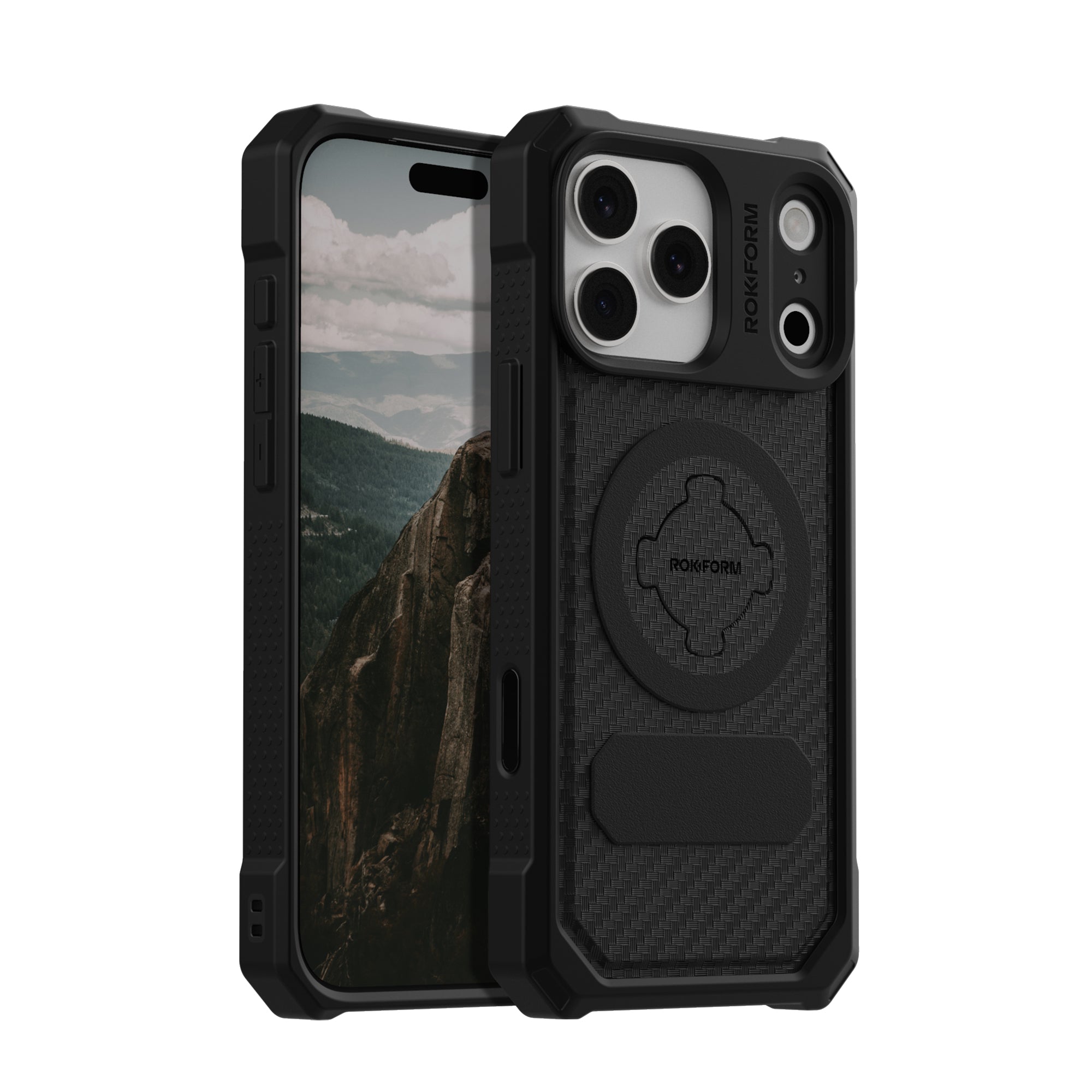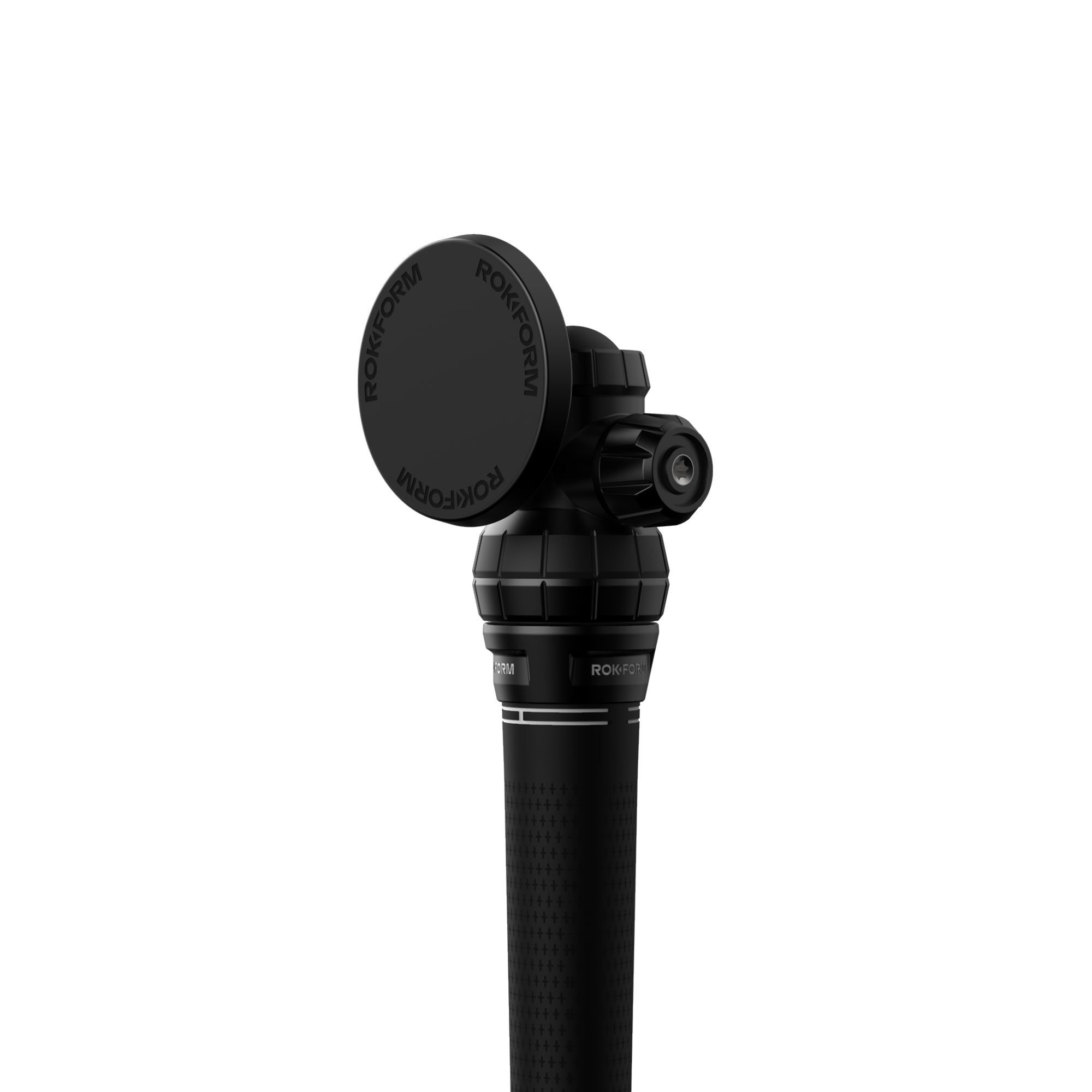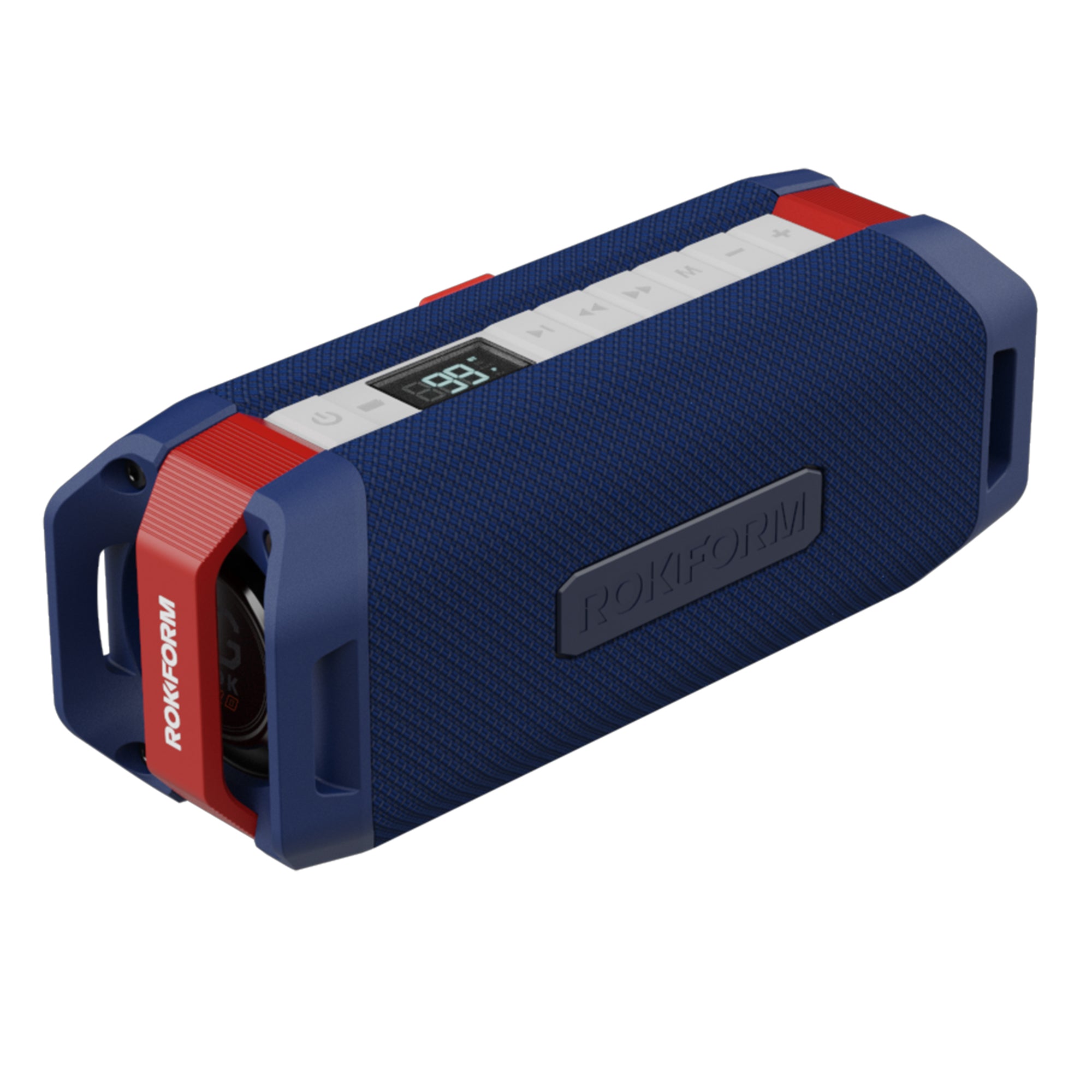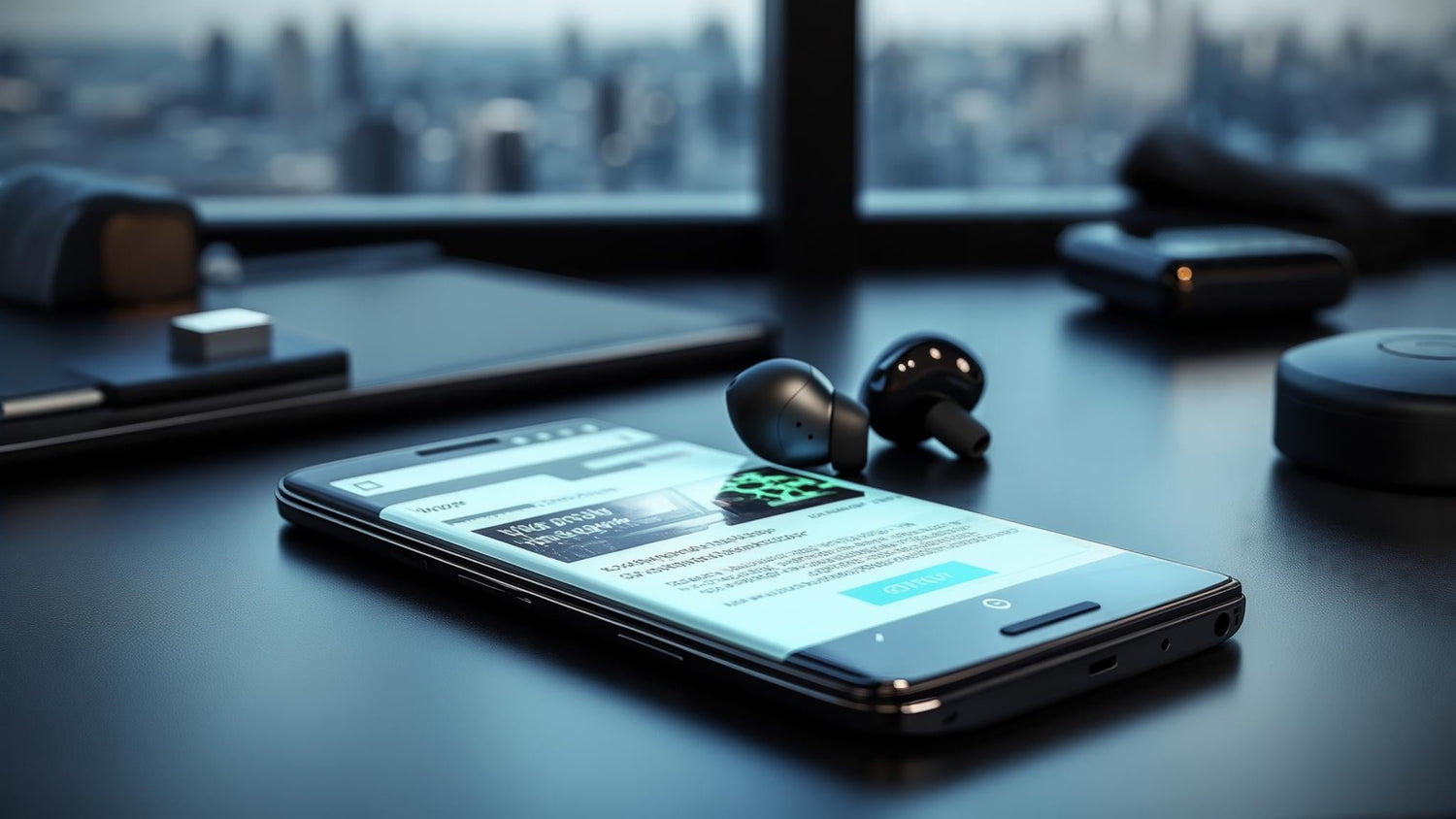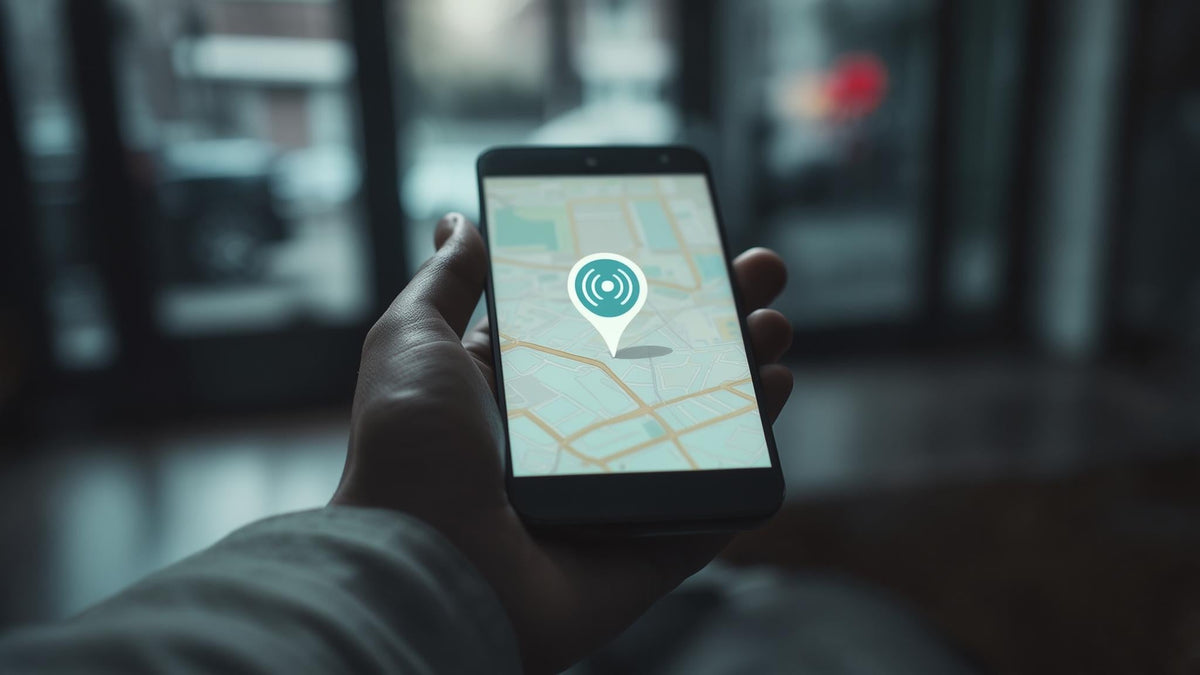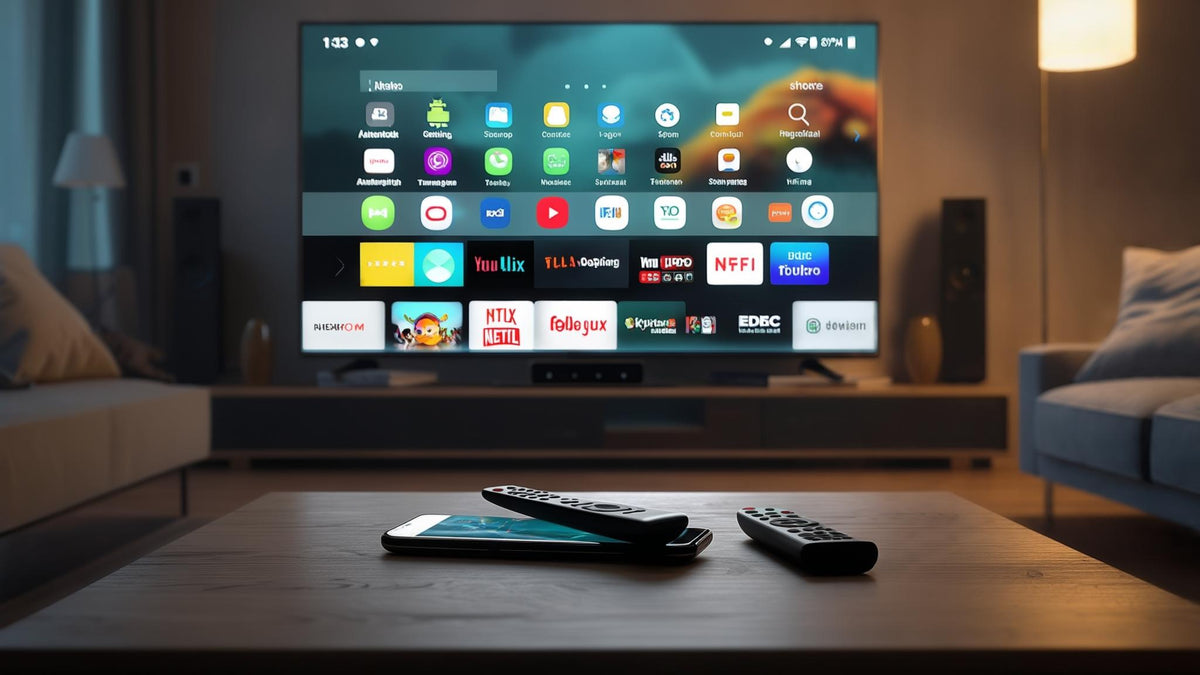Table of Contents
-
What You Need to Consider When Choosing the Best Android Phone
Performance and Processing Power
Display Quality and Size
Camera System Capabilities
Battery Life and Charging Technology
Build Quality and Durability
Software Experience and Updates
Storage and Expandability
Price-to-Value Ratio
-
Flagship Powerhouses (Premium Performance)
1. Samsung Galaxy S24 Ultra
2. Google Pixel 8 Pro
3. OnePlus 12
4. Xiaomi 14 Ultra
-
Camera Champions (Photography Focus)
5. Vivo X100 Pro
6. Honor Magic6 Pro
-
Mid-Range Marvels (Best Value)
7. Google Pixel 8a
8. Samsung Galaxy A55 5G
9. OnePlus 12R
10. Nothing Phone (2a)
11. Motorola Edge 50 Pro
-
Budget Champions (Under $300)
12. Samsung Galaxy A25 5G
13. Google Pixel 7a
14. Motorola Moto G Power (2025)
15. TCL 50 XL 5G
16. Realme 12 5G
-
Gaming Powerhouses (Performance Focus)
17. ASUS ROG Phone 8 Pro
18. Red Magic 9 Pro
19. Lenovo Legion Phone Duel 3
-
Foldable Innovations (Cutting-Edge Design)
20. Samsung Galaxy Z Fold6
21. Google Pixel Fold
22. OnePlus Open
23. Honor Magic V2
24. Motorola Razr 50 Ultra
25. Samsung Galaxy Z Flip6
Protecting Your Android Investment with Premium Cases
Final Thoughts
TL;DR
Your phone's processor is like a car engine - you don't need a race car for grocery runs, but 8GB RAM keeps things smooth
Your screen is what you stare at all day, so OLED with 90Hz+ refresh rates are worth it for the buttery smooth scrolling
Don't get caught up in megapixel counts - a well-tuned 50MP camera beats a crappy 108MP one every time
4,000mAh+ battery is the sweet spot, but fast charging matters more than you think when you're rushing out the door
Google and Samsung will support your phone the longest - some others abandon you after two years
Flagship phones are cool, but mid-range devices give you 80% of the experience at half the price
Foldables are the future, but they're expensive and you'll baby them like a newborn
Gaming phones are speed demons but take terrible selfies
You can get a solid phone for under $300 if you know where to compromise
Get a case - I've seen too many friends regret not protecting their $800+ investment
What You Need to Consider When Choosing the Best Android Phone
Last month, my friend Sarah asked me a question that stumped me: "What's the best Android phone?" After playing with dozens of phones over the years, I realized the answer isn't that simple. It's like asking "What's the best car?" - it totally depends on what you need it for.
Here's the thing - I used to be a total spec snob. I'd always buy the phone with the highest numbers. Then I spent $1,200 on a flagship phone and realized I was basically using it to scroll Twitter and take pictures of my lunch. Don't make my mistake.
What really matters isn't having the most powerful phone on paper - it's finding one that fits how you actually use your device. Do you game for hours? Take tons of photos? Just need something reliable for calls and texts? Once you know that, picking the right Android phone becomes way easier.

Performance and Processing Power
Here's the deal with processors - it's like horsepower in cars. Sure, a Ferrari has 700HP, but if you're just driving to Starbucks, a Honda Civic gets you there just fine. Same with phone chips. The Snapdragon 8 Gen 3 is awesome, but honestly? Most people would be perfectly happy with last year's chip.
I've been testing phones for years, and here's what I've learned: if you're not gaming or editing videos, you probably don't need the latest and greatest processor. My mom's been happily using a mid-range phone for two years and has never once complained about speed.
RAM is like your desk space - more is better, but 16GB is like having a dining table when a regular desk works fine. 8GB handles pretty much everything you'll throw at it, unless you're the type who keeps 47 browser tabs open (we see you).
Processor Tier |
What It's Actually Like |
RAM You Need |
Best For |
|---|---|---|---|
Flagship |
Sports car engine |
12GB+ |
Gaming addicts, show-offs, future-proofing |
Mid-Range |
Reliable family sedan |
8GB |
Normal humans doing normal things |
Budget |
Economy car that gets you there |
6GB |
Basic stuff, grandparents, tight budgets |
Think about it this way - Sarah, my graphic designer friend, actually needs that flagship power because she's running Adobe apps and juggling client work. But her husband just scrolls Instagram and watches YouTube. Guess who's happier with their cheaper phone?
Display Quality and Size
Your screen is what you stare at all day, so it better look good. I spend way too much time looking at phone screens (occupational hazard), and I can tell you that a bad display will annoy you every single day you own the phone.
Here's what actually matters: OLED screens have those deep blacks that make everything pop, and 90Hz refresh rate makes scrolling feel like butter. Once you use a high refresh rate display, going back to 60Hz feels like watching a slideshow.
Screen size is personal preference, but here's my take - bigger screens are great for watching videos and getting work done, but they're a pain to use one-handed and don't fit in small pockets. The sweet spot for most people is between 6.1 and 6.7 inches.
I learned this the hard way when I bought a massive 6.9-inch phone thinking bigger was better. Couldn't use it one-handed, and it looked ridiculous when I held it up to my ear for calls. Sometimes practical beats impressive.
Camera System Capabilities
Everyone obsesses over megapixels, but I've seen 12MP photos that blow away 108MP shots. It's like saying a bigger paintbrush makes you a better artist. The magic happens in how the phone processes the image, not how many pixels it crams in.
Here's what I actually look for: Can it take good photos of my friends at dinner in crappy restaurant lighting? Does it make my food look Instagram-worthy? Can I zoom in on stuff without it looking like a potato? Those are the real tests.
The computational photography stuff - that's where phones get smart about making your photos look amazing automatically. Google's Pixel phones are wizards at this. They can make you look good even when the lighting is terrible, which is basically magic.
Don't get caught up in having every lens imaginable. Most people use the main camera 90% of the time. Ultra-wide is fun for landscapes, telephoto is nice for concerts, but macro? When's the last time you needed extreme close-ups of a flower?
Battery Life and Charging Technology
Battery life is one of those things you don't think about until your phone dies at 3 PM and ruins your day. I've learned that 4,000mAh is the minimum for getting through a full day without anxiety, but here's the kicker - software optimization matters more than raw capacity.
Some phones with smaller batteries last longer than ones with huge batteries because the software is better at managing power. It's like fuel efficiency in cars - a well-tuned engine beats a gas guzzler every time.
Fast charging is a game-changer when you're rushing out the door with 15% battery. Some phones now charge from dead to full in 30 minutes, which honestly feels like cheating. Wireless charging is nice to have but not essential unless you're really into the convenience factor.
Build Quality and Durability
Premium materials feel nice, but here's the reality - most of us put our phones in cases anyway. I've watched too many friends obsess over the "premium glass back" and then immediately cover it with a $20 case.
What actually matters is whether the phone can survive real life. IP67 or IP68 water resistance is clutch when you inevitably drop your phone in a puddle or spill coffee on it. Trust me, it happens to everyone eventually.
Plastic phones might not feel as fancy, but they're often more durable than glass ones. My friend's budget phone has survived drops that would've shattered a premium device. Sometimes practical beats pretty.
Software Experience and Updates
This is where Android gets interesting - every manufacturer puts their own spin on it. Some barely change anything (looking at you, OnePlus), others go crazy with customization (Samsung's One UI has approximately 847 settings).
Here's what really matters: Will your phone still get security updates in three years? Google and Samsung are the best at this, promising up to seven years of support. Some other brands basically abandon your phone after two years, which is honestly pretty lame.
Stock Android (like on Pixel phones) is clean and fast, but some people love Samsung's extra features. It's like choosing between a basic Honda and one loaded with every possible option - both get you where you're going, but the experience is different.
Storage and Expandability
Cloud storage has changed the game here. I used to obsess over having 512GB of storage, but now I just let Google Photos back up everything and keep local storage for apps and recent stuff. 128GB is fine for most people if you're smart about cloud storage.
Some phones still have microSD slots, which is nice for people who want to store everything locally. But honestly, with 5G and good WiFi everywhere, streaming and cloud storage work pretty well for most stuff.
If you're a photo hoarder or download tons of games, spring for more storage. But don't pay flagship prices just for storage when cloud solutions work fine.
Price-to-Value Ratio
Here's my honest take: flagship phones are like luxury cars. They're impressive and have the latest tech, but a $500 mid-range phone does 90% of what a $1,200 flagship does. The question is whether that extra 10% is worth doubling your budget.
I've used $200 phones that handle daily tasks just fine and $1,500 phones that mostly sit on my desk looking pretty. The sweet spot for most people is in the $300-600 range where you get modern features without the premium tax.
Think about what you actually do with your phone. If it's mostly texting, social media, photos, and streaming, you don't need to spend flagship money. Save the cash for something else, or get a really nice case and wireless charger.
Flagship Powerhouses (Premium Performance)
Flagship Android phones are basically the sports cars of the phone world - impressive, loaded with features, and more powerful than most people actually need. But man, they're fun to use.
I've spent months with each of these phones, and they all deliver that premium experience where everything just works perfectly. The screens are gorgeous, cameras are incredible, and performance is buttery smooth. The question isn't whether they're good - they're all amazing. The question is which one fits your specific needs and whether you want to spend flagship money.
Each phone here represents a different philosophy. Samsung throws in everything including the kitchen sink, Google focuses on AI and photography, OnePlus goes for performance value, and Xiaomi targets camera enthusiasts.

1. Samsung Galaxy S24 Ultra
The Galaxy S24 Ultra is basically the Swiss Army knife of phones - it does everything, including things you'll never use, like measuring your heart rate (seriously, when was the last time you needed that?).
This thing has a massive 6.8-inch screen that's perfect for watching Netflix, a built-in S Pen for taking notes (which I actually use more than I expected), and cameras that can zoom so far you can probably spy on your neighbors. The 200MP main camera sounds ridiculous on paper, but it actually takes incredible photos.
The titanium build feels solid and premium, though at $1,299, it better feel like holding a small piece of luxury. With 12GB of RAM, this phone handles literally anything you throw at it without breaking a sweat.
2. Google Pixel 8 Pro
The Pixel 8 Pro is like having a professional photographer in your pocket who also happens to be really good at organizing your digital life. Google's computational photography is straight-up magic - it makes everyone look good in photos, even in terrible lighting.
The 6.7-inch screen is beautiful, and the phone feels clean and fast because it's running pure Android without any manufacturer bloatware. Plus, Google promises seven years of updates, which means this phone will still be getting new features when you're probably ready to upgrade anyway.
The AI features actually feel useful instead of gimmicky. Magic Eraser removes photobombers from your pics, and the spam call filtering is so good I forgot phone spam was even a thing.
3. OnePlus 12
The OnePlus 12 is like getting a BMW from two years ago at Toyota prices. It's not the absolute latest, but it's still way nicer than what most people need, and you save a ton of money.
This phone has flagship performance with the Snapdragon 8 Gen 3 and a gorgeous 6.82-inch display, but the real star is the battery situation. 5,400mAh capacity with 100W charging means you can go from dead to full in like 25 minutes. As someone who constantly forgets to charge their phone overnight, this is a lifesaver.
Starting at $799, it's a solid $500 cheaper than Samsung's equivalent while delivering 95% of the experience. The Hasselblad camera partnership produces genuinely good photos too.
4. Xiaomi 14 Ultra
The Xiaomi 14 Ultra is for people who want their phone to basically replace their DSLR camera. It has four 50MP cameras and a partnership with Leica that brings serious camera expertise to smartphone photography.
The titanium build feels premium, and the 6.73-inch display is gorgeous for reviewing your photos. But let's be real - this phone is all about the cameras. If you're not into photography, you're paying for features you won't use.
There's even an optional camera grip that makes it feel like holding an actual camera. It's pretty cool if you're serious about mobile photography, but it also makes you look like a tourist everywhere you go.
Camera Champions (Photography Focus)
These phones are for people who care more about getting the perfect shot than having the absolute latest processor. I've taken thousands of photos with each device, and they consistently deliver images that make you look like a better photographer than you actually are.
If you're someone who lives for that perfect Instagram shot or you're trying to replace your actual camera with your phone, these are the devices to consider. They prioritize camera quality above everything else.
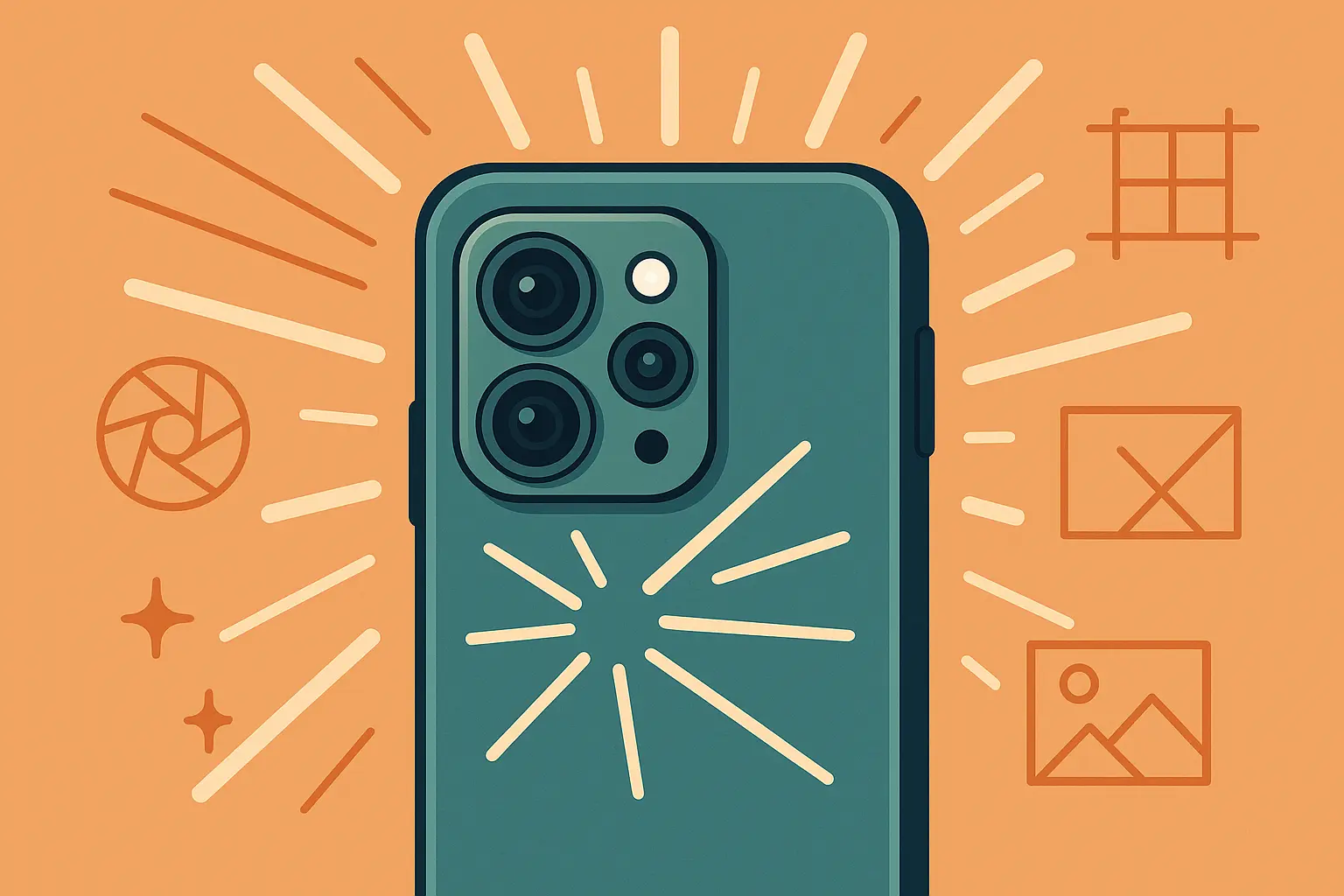
5. Vivo X100 Pro
The Vivo X100 Pro brings Zeiss camera expertise to smartphones, and you can actually see the difference in photo quality. The colors have this distinctive, professional look that makes your photos stand out from the typical smartphone shots.
The MediaTek Dimensity 9300 chip handles everything smoothly while powering some seriously impressive camera processing. The triple 50MP setup with Zeiss T* coating delivers photos that have character and technical excellence.
Night photography is where this phone really shines. I've taken shots in conditions where I could barely see what I was photographing, and the phone still produced usable, attractive images.
6. Honor Magic6 Pro
The Honor Magic6 Pro has this crazy 180MP telephoto camera that lets you zoom in on stuff that's incredibly far away while still maintaining detail. It's like having binoculars built into your phone.
The AI-powered photography features actually enhance your shots instead of just adding complexity. The eye tracking system helps with portraits, and the falcon camera system (yes, that's what they call it) captures details you didn't even know were there.
Professional photographer Mike uses his Honor Magic6 Pro for client shoots when his DSLR isn't practical. The 180MP telephoto lens allows him to capture detailed portraits from a distance during events, while the AI-powered photography features help him quickly adjust settings for different lighting conditions without missing crucial moments.
Mid-Range Marvels (Best Value)
This is where things get really interesting. Mid-range phones have gotten so good that I sometimes question why anyone spends flagship money anymore. These phones give you about 80% of the flagship experience at half the cost, which is honestly a pretty sweet deal.
I've been consistently blown away by how these devices prove that you don't need to break the bank for a great phone experience. The mid-range category has become incredibly competitive, which means we all win with better phones at lower prices.
Each phone here excels in specific areas while keeping the overall package solid. It's like getting a really well-equipped Honda instead of a base model BMW - sometimes the Honda is actually the smarter choice.
Device |
Price |
Key Strength |
What It's Like |
Best For |
|---|---|---|---|---|
Google Pixel 8a |
$499 |
Camera magic |
Flagship photos, budget price |
Photo enthusiasts |
OnePlus 12R |
$499 |
Speed demon |
Last year's flagship power |
Power users on a budget |
Nothing Phone (2a) |
$349 |
Unique style |
The phone that gets noticed |
Style-conscious users |
Galaxy A55 5G |
$400 |
Beautiful screen |
Samsung quality, lower price |
Media lovers |
7. Google Pixel 8a
The Pixel 8a is basically Google saying "here's our flagship camera and software experience, but we'll use slightly cheaper materials to keep the price down." At $499, you get the same computational photography magic that makes Pixel phones famous.
This phone takes photos that rival devices costing twice as much. The night mode is incredible, portrait shots look professional, and the Magic Eraser feature still feels like cheating. Plus, you get seven years of updates, which is better than most flagships offer.
The build quality isn't quite as premium as the Pixel 8 Pro, and charging is slower, but for most people, those compromises are totally worth the $300 savings.
8. Samsung Galaxy A55 5G
Samsung's Galaxy A55 5G brings that gorgeous AMOLED display technology down to $400, and honestly, the screen quality matches their flagship phones. If you love watching videos or just want everything to look vibrant and crisp, this is your phone.
The build quality is solid with IP67 water resistance, so you don't have to baby it. The cameras are decent for the price, and the 5,000mAh battery easily gets you through a full day.
This is perfect for people who want the Samsung ecosystem and One UI experience without paying flagship prices. You get most of the Samsung features that actually matter.
9. OnePlus 12R
The OnePlus 12R is like buying last year's flagship processor at this year's mid-range prices. The Snapdragon 8 Gen 2 is still incredibly fast, and most people wouldn't notice the difference from the newer chip in daily use.
The massive 5,500mAh battery with 100W charging is actually better than what you get in many flagships. I can go from nearly dead to fully charged in the time it takes to shower and get dressed.
At $499, this phone delivers flagship performance without the flagship price tag. The OxygenOS software is clean and fast, without the bloatware that some manufacturers love to pile on.
10. Nothing Phone (2a)
The Nothing Phone (2a) is for people who want their phone to be a conversation starter. The transparent back and LED light system (they call it Glyph) makes this phone look like nothing else on the market.
At $349, it's not just about the looks though. The MediaTek Dimensity 7200 Pro handles daily tasks smoothly, and the clean Android experience feels fast and responsive. The LED system isn't just for show - it actually provides useful notifications.
Camera performance is average for the price, but if you want something that stands out from the sea of identical black rectangles, this is your phone.
11. Motorola Edge 50 Pro
The Motorola Edge 50 Pro is like the reliable friend who doesn't have any major flaws but doesn't necessarily stand out in a crowd either. Sometimes that's exactly what you want in a phone.
The 6.7-inch pOLED display looks great, the Snapdragon 7 Gen 3 handles everything smoothly, and the 125W fast charging is impressively quick for this price range. The near-stock Android experience keeps things clean and simple.
This phone appeals to people who want solid performance across the board without any deal-breaking weaknesses. It's not the most exciting phone, but it's dependable.
Budget Champions (Under $300)
Here's where things get really impressive. Budget phones under $300 have gotten so good that they can handle pretty much everything most people actually do with their phones. We're not talking about compromised experiences anymore - these are genuinely capable devices.
I've been amazed by how much capability manufacturers pack into these affordable phones. Sure, they make some smart compromises, but they focus on getting the essentials right instead of chasing flagship features that most people don't need.
The budget category proves that you don't need to spend a fortune to get a phone that works well for calls, texts, social media, photos, and streaming. Sometimes simple and reliable beats complex and expensive.

12. Samsung Galaxy A25 5G
The Galaxy A25 5G brings Samsung's beautiful Super AMOLED display down to just $249, and honestly, the screen quality is shockingly good for the price. Colors pop, blacks are deep, and it's bright enough to use outdoors.
The 5,000mAh battery easily lasts all day, and the Exynos 1280 processor handles basic tasks without any frustrating lag. You get Samsung's One UI with all its customization options and regular security updates.
This is perfect for people who want that premium Samsung display experience without spending premium money. The camera is decent for social media, and build quality feels solid.
13. Google Pixel 7a
The Pixel 7a at $299 (often less on sale) is probably the best camera you can get in a budget phone. Google's computational photography makes everyone look good in photos, even in terrible lighting conditions.
The Tensor G2 processor provides solid performance while enabling those AI camera features that make Pixel phones special. Wireless charging support is rare at this price point, and guaranteed software updates mean this phone stays secure.
My teenager has this phone, and honestly? Her photos look just as good as mine from my $1,200 flagship. Sometimes I question my life choices.
14. Motorola Moto G Power (2025)
The Moto G Power lives up to its name with incredible battery life. The 5,000mAh battery easily provides two days of typical use, which is perfect for people who forget to charge their phone every night.
At just $199, it focuses on the essentials - reliable communication, solid battery life, and a clean Android experience. The MediaTek Dimensity 7020 processor handles basic tasks fine, though don't expect gaming performance.
This phone is ideal for people who just need reliable communication and long battery life. It's not fancy, but it gets the job done without breaking the bank.
15. TCL 50 XL 5G
TCL's 50 XL 5G offers a huge 6.78-inch display at the aggressive $199 price point. If you want maximum screen real estate for watching videos or reading, this delivers incredible value.
The large screen makes everything easier to see and interact with, which is great for people who struggle with smaller displays. The 5,010mAh battery provides solid all-day performance.
Performance is basic with the MediaTek Dimensity 6100+ processor, but for media consumption and simple tasks, it works fine. The value proposition is all about that big, usable screen.
16. Realme 12 5G
The Realme 12 5G packs a surprisingly capable 108MP camera into a $229 package. In good lighting, it takes photos that punch well above its price class.
The 5,000mAh battery provides reliable all-day use, and the MediaTek Dimensity 6100+ processor handles daily tasks adequately. The 6.72-inch display gives you plenty of screen space for the price.
College student Emma chose the Google Pixel 7a for $299 because she needed excellent photo quality for her social media content creation but couldn't afford a flagship device. The computational photography features help her capture professional-looking shots for her Instagram account, while the guaranteed software updates ensure her phone stays secure throughout her four-year degree program.
Gaming Powerhouses (Performance Focus)
Gaming phones are like the muscle cars of the smartphone world - they prioritize raw power and performance above everything else. I've tested these devices with the most demanding games available, and they deliver performance that honestly makes regular flagships look slow.
These phones are built for people who take mobile gaming seriously. They have the fastest processors, advanced cooling systems, high refresh rate displays, and gaming-specific features. But here's the trade-off - they often look like they're from the future (not always in a good way) and the cameras are usually just okay.
If you're someone who spends hours gaming on your phone, these devices are worth considering. For everyone else, they're probably overkill.

17. ASUS ROG Phone 8 Pro
The ROG Phone 8 Pro is what happens when engineers design a phone specifically for gaming without worrying about what anyone else thinks. It has actual shoulder buttons, RGB lighting, and cooling that would make a gaming PC jealous.
The 6,000mAh battery means you can game for hours without worrying about dying mid-match. The 165Hz display makes everything incredibly smooth, and the advanced cooling system means the phone doesn't throttle performance when things get intense.
It still has a 3.5mm headphone jack, which is awesome for serious gaming audio. The downside? It looks like a gaming phone, which might not be everyone's aesthetic.
18. Red Magic 9 Pro
The Red Magic 9 Pro has an actual fan inside it. Like, a tiny computer fan that spins to keep the processor cool during gaming sessions. It's kind of ridiculous and absolutely awesome at the same time.
The Snapdragon 8 Gen 3 processor never slows down because of that active cooling system. The 6,500mAh battery is massive, and the gaming triggers make playing competitive games way easier.
The RGB lighting and gaming aesthetic definitely make you stand out (for better or worse), but the performance is undeniably impressive.
19. Lenovo Legion Phone Duel 3
The Legion Phone Duel 3 takes a completely different approach - it's designed to be used in landscape mode with the camera on the side. It's weird, but it actually makes sense for gaming and streaming.
The dual cooling fan system keeps performance consistent, and the gaming accessories ecosystem lets you customize your setup extensively. It's like having a portable gaming console that also happens to make phone calls.
This phone is for people who are serious about mobile gaming as more than just a casual hobby. It's specialized equipment for a specific use case.
Gaming Phone |
Cooling System |
Display |
Battery |
Gaming Features |
Price Range |
|---|---|---|---|---|---|
ASUS ROG Phone 8 Pro |
Vapor chamber + fan |
6.78" 165Hz AMOLED |
6,000mAh |
Shoulder buttons, RGB, 3.5mm jack |
$1,200+ |
Red Magic 9 Pro |
Active fan cooling |
6.8" 120Hz AMOLED |
6,500mAh |
Gaming triggers, RGB lighting |
$800+ |
Legion Phone Duel 3 |
Dual fan system |
6.92" 144Hz AMOLED |
5,500mAh |
Landscape design, accessories |
$900+ |
Foldable Innovations (Cutting-Edge Design)
Foldables are basically the concept cars of the phone world - they show us what the future might look like, but they come with some practical trade-offs. I've spent considerable time with each foldable design, and they're genuinely impressive pieces of technology.
The big appeal is having a tablet-sized screen that folds down to phone size. It's pretty magical the first time you unfold one and suddenly have all that screen real estate. But they're expensive, you'll baby them like a newborn, and the software is still catching up to the hardware.
These phones represent the future of smartphone design, though current versions require careful consideration of whether you want to be an early adopter or wait for the technology to mature further.

20. Samsung Galaxy Z Fold6
The Galaxy Z Fold6 is the most polished book-style foldable you can buy. When folded, it's a regular (if thick) phone. Unfold it, and you have a 7.6-inch tablet that's genuinely useful for productivity.
I actually found myself using the multitasking features more than I expected. Having two apps open side-by-side changes how you work on a phone. The S Pen support makes it feel like a tiny laptop replacement.
At $1,800+, it's expensive, but if you can justify the cost and take advantage of the productivity features, it's genuinely useful. Just be prepared to explain what it is to everyone who sees it.
21. Google Pixel Fold
Google's take on the foldable brings that clean Android experience and incredible computational photography to the folding form factor. The camera quality is what you'd expect from a Pixel, which is more than you can say for most foldables.
The seven years of guaranteed updates and clean software experience make this appealing if you want foldable innovation without Samsung's feature overload. It feels more like a Pixel that happens to fold rather than a foldable that happens to run Android.
The unique form factor enables some interesting photography angles that you can't get with regular phones, which is pretty cool for content creation.
22. OnePlus Open
The OnePlus Open has the largest and brightest foldable displays I've tested. The screens are genuinely impressive, and the overall package feels more refined than I expected from OnePlus's first foldable attempt.
At a more reasonable price than Samsung's offering, it provides similar functionality without some of the premium features. The Hasselblad camera partnership delivers solid photo quality that doesn't embarrass the foldable form factor.
The thinnest foldable design makes it more practical for daily carry, though it's still thicker than any regular phone when folded.
23. Honor Magic V2
The Honor Magic V2 is shockingly thin at just 9.9mm when folded. It actually feels like a regular (thick) phone rather than two phones taped together, which is impressive engineering.
The large 7.92-inch internal display and solid 5,000mAh battery show that you don't have to sacrifice everything for the folding mechanism. Performance is solid for both productivity and entertainment.
This phone proves that foldables don't have to be thick and unwieldy, making it more practical for people who want the foldable experience without the bulk.
24. Motorola Razr 50 Ultra
The Razr brings back the flip phone in modern form, and honestly, there's something satisfying about hanging up on someone by snapping your phone shut. The nostalgia factor is real.
The large 4.0-inch external display means you can do a lot without unfolding the phone, which is practical for quick interactions. When unfolded, you get a full smartphone experience in a compact package.
The flip form factor is the most pocketable smartphone available, which appeals to people who prioritize portability. Plus, it's a great conversation starter.
25. Samsung Galaxy Z Flip6
Samsung's Galaxy Z Flip6 combines flagship performance with the unique flip form factor. You get the Snapdragon 8 Gen 3 processor and Samsung's refined foldable engineering in a compact package.
The 6.7-inch main display provides full smartphone functionality when unfolded, while the cover screen handles quick tasks without opening the phone. It's like having a regular flagship that folds in half.
Battery life is limited by the compact size, but the unique form factor and flagship performance create an appealing package for people who want something different from the typical phone experience.

Protecting Your Android Investment with Premium Cases
Look, cases aren't sexy, but dropping your phone is expensive. I've watched too many friends crack their screens and immediately regret not spending $30 on protection for their $800 phone. It's like wearing a seatbelt - boring but smart. After you've spent time picking the perfect Android phone from this list, protecting that investment becomes crucial. Whether you went with a $299 budget champion or an $1,800 foldable, a cracked screen costs way more than a good case.
Rokform makes cases that are trusted by first responders and military personnel - basically people who can't afford to have their phone break when it matters. Their 6-foot drop protection and high-impact polycarbonate construction means your phone survives real-world accidents.
The patented RokLock™ mounting system and MAGMAX™ magnets provide secure mounting for GPS navigation, content creation, or work applications. This is especially important for foldables and gaming phones that represent higher investments and need the most advanced protection available.
Whether you invested in flagship power or found the perfect budget option, proper case protection extends your phone's lifespan and maintains resale value when you're ready to upgrade.
Final Thoughts
Here's what I wish someone told me before my first phone purchase: Don't get caught up in the specs race. Pick something from a brand you trust, in your budget, that feels good in your hand. You'll upgrade in 2-3 years anyway, so don't stress about making the "perfect" choice.
The Android ecosystem's greatest strength is this incredible variety - from budget champions under $300 that handle everything you actually need to flagship powerhouses that push technological boundaries. Mid-range phones prove that premium experiences don't require premium pricing, while specialized devices cater to specific needs that regular smartphones can't match.
When people ask me "what's the best Android phone," I always turn it back on them: How do you actually use your phone? Do you take tons of photos? Game for hours? Just need reliable communication? Once you answer that honestly, the right choice becomes obvious.
Will any of these phones change your life? Probably not. Will they send texts, take decent photos, and let you scroll TikTok without lag? Absolutely. Sometimes that's all you need.
And if you're still paralyzed by options? Just get a Pixel or a Galaxy from Samsung. They're safe choices that work well for 90% of people. Sometimes boring is exactly what you want in a phone - reliable, dependable, and drama-free.
The best Android phone is ultimately the one that fits your lifestyle, usage patterns, and budget without making you worry about it. Any phone on this list will serve you well with proper protection, so pick one that makes sense for your situation and don't look back.

